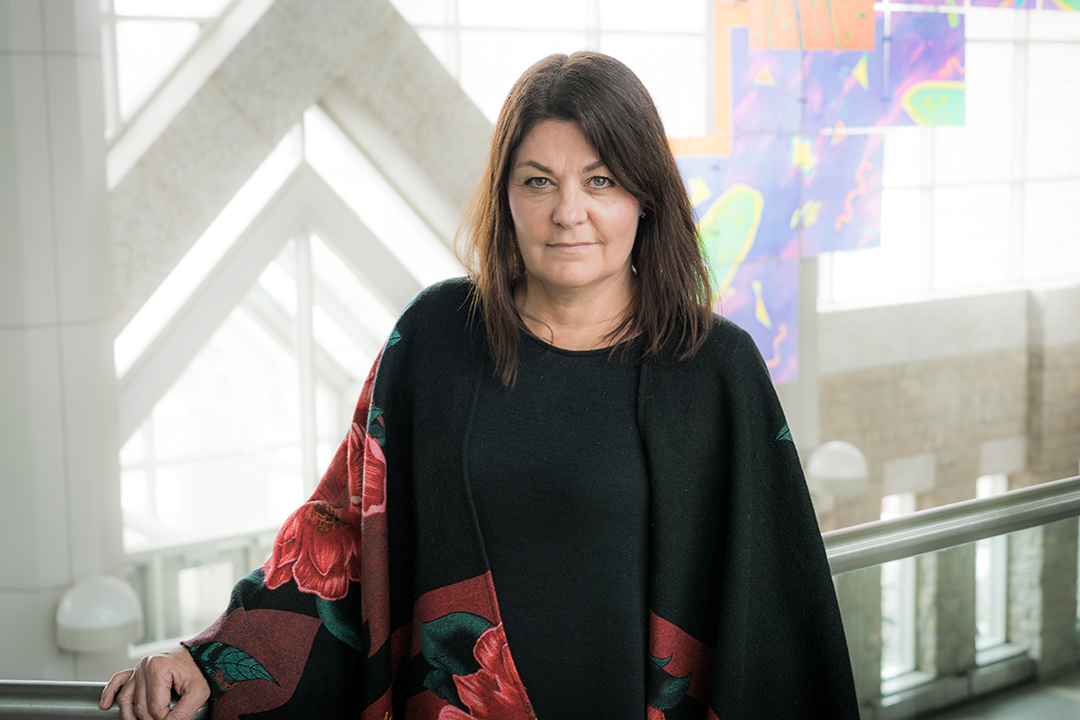
World-renowned researcher plants roots at SENS
Although her work has taken her to multiple countries across four continents, Irena Creed has found a place to call home amongst like-minded researchers at the University of Saskatchewan.
By Chris MorinHaving worked extensively across the world, including a decade serving as a Canada Research Chair in Watershed Sciences at Western University, Creed joined the campus community in September 2017 as the new executive director of the School of Environment and Sustainability (SENS).
While her experience working as director of the Africa Institute at Western helped prepare her for the move to SENS, it was an accumulation of knowledge in environmental issues that ultimately drew her to the province.
“My previous work was already transdisciplinary, but essentially done off the side of my desk,” said Creed, who began her term after taking over from Toddi Steelman, who completed a five-year term as executive director in 2017. “But my current position allows me to place the transdisciplinary work front and centre. That’s what attracted me to the U of S. Many of the people here look at problems in a multi-dimensional way."
“I felt like I was amongst friends and family coming here”
Creed’s transition into executive director comes at an exciting time for the school. Having celebrated its 10th anniversary in 2017 with a gala event, SENS now has 180 alumni who have graduated from its two professional master degree programs, two thesis-based programs, in addition to 34 students who have earned an undergraduate certificate in sustainability.
Creed, who was previously invited to campus as a guest speaker in the Global Institute for Water Security’s Distinguished Lecture Series in 2013, said she hopes to continue to build on the progress of a school that has become known for problem-oriented, use-inspired research and experience-based learning.
“All of us want to have a positive impact in society. And the transdisciplinary approach allows us a greater chance to make positive change because we are all working together in a participatory approach to identify solutions and implement them,” said Creed.
While SENS has proven to be a good fit for Creed, she hopes to continue the work she began overseas while also building on the progress of the school.
“My work in Africa started with a taxi cab driver who was driving a professor from one of my former institutions to the airport,” said Creed. “The driver was from Rwanda and he expressed a desire for academics from other countries to help improve the livelihoods and health and well-being of Africans. That one conversation in the taxi eventually snowballed into a government-funded project with the International Development Research Centre of Canada. And as this project progressed, when we talked to the people, they expressed great concern with access to clean water supplies. And this initiated the next 10 years of my work, where I looked at algal blooms and toxins in water, which is a defining part of my work in Africa and in Canada, and also a major concern for researchers here at the U of S.”
SENS @ 10 and beyond
While Creed hopes to draw on the strengths of her past work, she is already looking strategically at the next 10 years of SENS. And she has wasted little time in getting to work on bringing global initiatives to the school.
In her first month as executive director, she applied to and was ultimately successful in receiving funding with the Canadian Queen Elizabeth II Diamond Jubilee Scholarships program to look at training in planetary health with a focus on Canadian and African Indigenous communities-at-risk. This scholarship program will enable Canadian and African students to participate in exchanges and internships, learning from one another.
She has also been working closely with the senior leaders of the School of Public Health and School of Public Policy, with the eventual goal of starting a planetary health initiative at the U of S that would have strong linkages to the developing world.
“The work here and overseas will continue, wherever communities are at risk due to issues such as climate change and a lack of access to safe and reliable food, energy and water sources.
“At SENS we have creative minds open to change. Undisciplinary thinking—which embraces the fusion of different disciplines— can lead to transformative changes in society. At SENS, we’re embracing undisciplinary thinking and seeking to work closely with other units on campus to work on some of the most challenging problems facing society,” she said. “To achieve positive change, this is something we need to work on. Together.”
Article re-posted on .
View original article.

